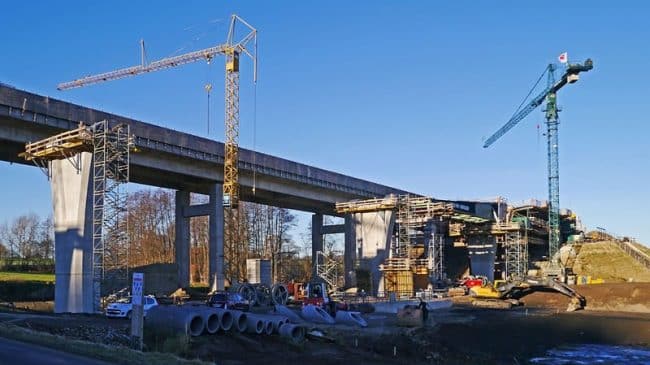President Trump has promised to eliminate regulations and rebuild the nation’s aging infrastructure. Federal agencies are awash with regulations and provisions based on the presumption that government is, and should be, the sole provider of infrastructure. But now that we understand the merits of public-private partnerships, which can provide more accountable public-purpose infrastructure, these numerous regulations and provisions serve as major obstacles preventing the improvement of highways and other infrastructure.
Back in 1995, Reason Foundation published a policy study itemizing a number of these regulatory barriers. Sadly, most of them still exist today. If a state or municipal facility has received direct federal grant funds, for example, a change of use or ownership (such as entering a long-term lease/concession with a company to reconstruct and manage it) triggers a grant repayment requirement, which essentially serves as a tax and prevents these types of deals from getting done. Since this is an Office and Management and Budget rule, it could be changed by the stroke of President Trump’s pen.
Similarly, changes are needed to the Federal Highway Administration pilot program to allow Interstate highway reconstruction projects to be funded by toll revenues. The 47,000 miles of Interstate highways are the nation’s most valuable surface transportation infrastructure, handling 25 percent of all vehicle miles of travel on just 2.5 percent of the nation’s total highway lane-miles. In Southern California, I-5, I-10 and I-15 are all vital arteries for residents and businesses. But the Interstate system was designed to last 50 years and much of the pavement is nearing the end of its life cycle.
Just repaving them won’t be enough, however. Interstates are also strangled by obsolete interchanges and major bottlenecks that give Southern California some of the nation’s worst traffic congestion. Many major truck route corridors involving Southern California could benefit from dedicated truck lanes that would improve safety and handle the projected increases in freight shipments in the coming decades.
Since there is no dedicated source of funding for this trillion-dollar (nationwide) refurbishment, a major focus of a Trump infrastructure plan must be identifying how to fund the reconstruction and modernization of this vital infrastructure. Nearly all the Interstate corridors in California would lend themselves to long-term public-private partnership deals, financed by equity and toll revenue bonds instead of taxpayer money.
Compared with this need, the tiny existing federal pilot program is not serious. It is open to just three states, and each is allowed to toll-finance only a single corridor. Transportation officials should be able to make a positive case to legislators and voters that over the next 20 years, toll financing can successfully rebuild and modernize all Interstates in busy states like California.
Congress could do several other things to make the toll financing customer-friendly and appealing. First, require any new tolling be implemented on a highway only after it has been reconstructed, so users only pay tolls once they are able to use the improved infrastructure. Second, require states to enact statutes guaranteeing that the toll revenues generated on replaced Interstate highways will be used solely to pay for the reconstruction, maintenance and operating costs of those highways. Third, consistent with the idea of transitioning from per-gallon taxes to per-mile charges, states should be required to offer fuel-tax rebates to toll-paying customers of the newly rebuilt corridors. That would eliminate the “double taxation” concerns raised by truckers and other toll skeptics.
Infrastructure funds, pension funds and private companies lament the lack of a “pipeline” of infrastructure projects in California and across the United States. That’s because 20th-century regulations and policies make public-private partnership projects more difficult, not financially feasible, or impossible. President Trump and Congress have the opportunity to remove these federal obstacles.
Robert W. Poole, Jr. is director of transportation policy at Reason Foundation.

